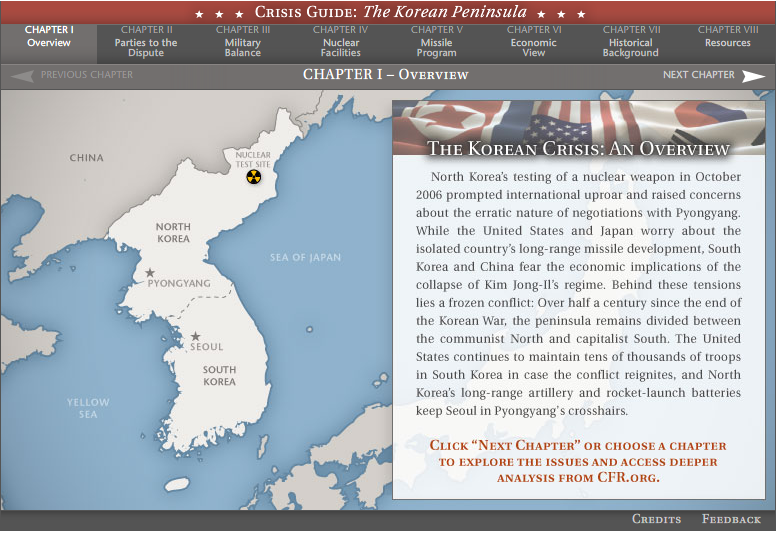CFR.org | Backgrounder: The Six-Party Talks on North Korea's Nuclear Program
/The Six-Party Talks are aimed at ending North Korea's nuclear program through a negotiating process involving China, the United States, North and South Korea, Japan, and Russia. Since the talks began in August 2003, the negotiations have been bedeviled by diplomatic standoffs among individual Six-Party member states--particularly between the United States and North Korea. In April 2009, North Korea quit the talks and announced that it would reverse the ongoing disablement process called for under the Six-Party agreements and restart its Yongbyon nuclear facilities. Because Pyongyang appears intent on maintaining its nuclear program, some experts are pessimistic the talks can achieve anything beyond managing the North Korean threat. The Obama administration has been pursuing talks with the other four countries in the process to bring Pyongyang back to the negotiation table. Alongside the United Nations' effort to sanction North Korea's nuclear and missile tests, "this regional partnership between the United States and the countries of Northeast Asia remains the best vehicle ... for building stable relationships on and around the Korean peninsula," writes CFR's Sheila Smith.
Co-authored by Jayshree Bajoria and Carin Zissis


